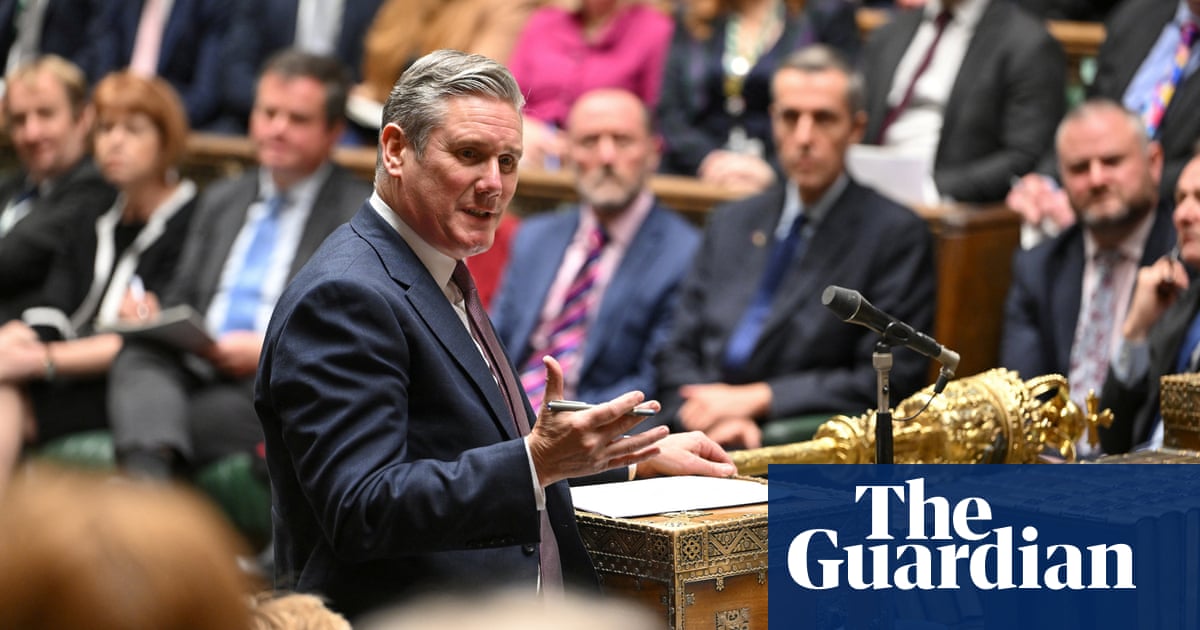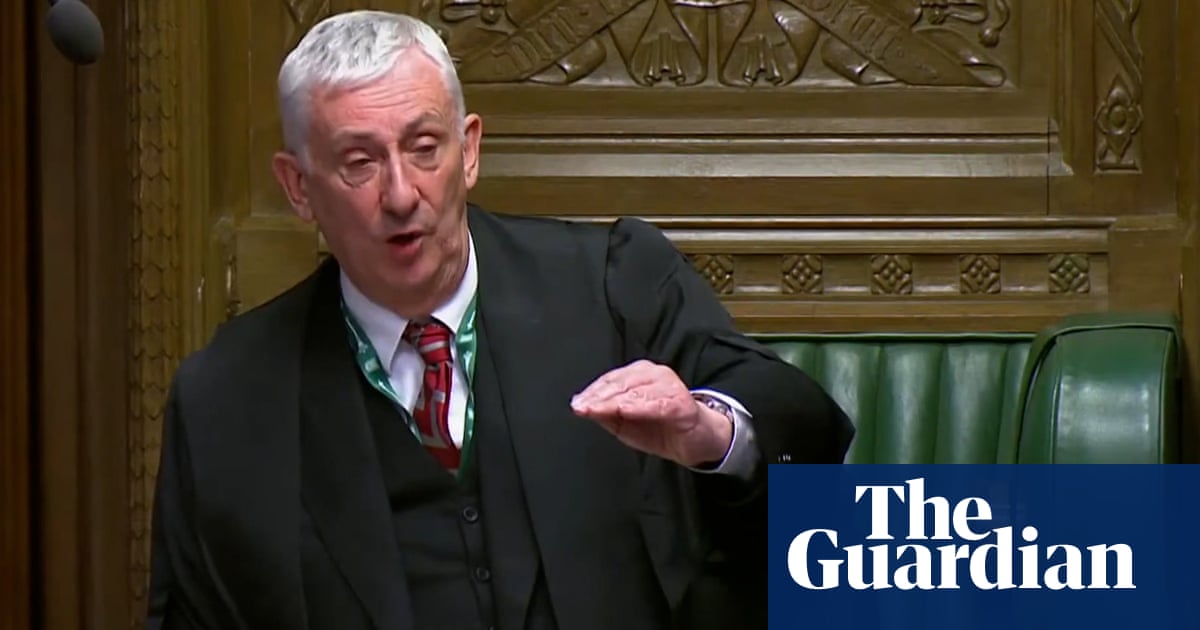
Keir Starmer is facing a fresh test of his authority as MPs prepare to vote on a second parliamentary motion calling for an “immediate” ceasefire in Gaza next week.
The Labour leader and his officials will spend the next few days deciding how to handle an SNP motion on the Middle East crisis, after the party’s abstention on a similar vote in November triggered a huge split in the party and 10 frontbench resignations.
The vote is likely to put further pressure on Starmer, who is already under fire over his handling of two Labour candidates who were recorded making derogatory remarks about Israel.
Some in Labour have been infuriated by Starmer dragging his feet over calling for a ceasefire. The Labour leader initially called for a “humanitarian pause” and has now shifted to backing a “sustainable ceasefire”, while stopping just short of saying this should be immediate.
More than 28,000 Palestinians are thought to have been killed since Israel started its military action in Gaza, with Benjamin Netanyahu vowing to press ahead with a ground offensive in Rafah where more than 1 million refugees are sheltering.
When the motion came to a vote last year, Starmer suffered his biggest rebellion as leader, with 56 MPs voting for the SNP motion, including eight shadow ministers, while Labour abstained.
“This is going to reopen all those wounds which we thought we had got past,” said one Labour MP about next week’s vote.
Another senior Labour MP said they “cannot imagine” that the leadership could ask its MPs to abstain on a ceasefire vote now that its position has substantially shifted.
The Labour leader tweeted last week: “The fighting must stop now. We need a sustainable ceasefire.”
Since he called for an end to fighting “now”, it is possible the Labour leadership could move towards not disciplining those who vote for the SNP motion or even collectively vote in favour of an “immediate” ceasefire.
Many backbenchers are already preparing to vote with the SNP. Labour’s chief whip, Alan Campbell, is understood to have reminded one leftwinger last month that voting with the SNP was not allowed – in what was interpreted as a veiled warning not to defy the leadership over a second ceasefire vote.
However, the climate has shifted since then, with one party official saying it would be “madness” to impose heavy discipline on a ceasefire vote.
Stephen Flynn, the SNP Westminster leader, called on both Starmer and Rishi Sunak to back an immediate ceasefire, saying “the time for equivocating is over”.
“Over 28,000 Palestinian children and civilians have already been killed – and vast swathes of Gaza have been obliterated, including hospitals and family homes,” he said.
“The UK parliament cannot just sit on its hands and do nothing. International pressure is paramount if an immediate ceasefire is to happen – and the UK has a moral duty to do its part.
“With every day Sunak and Starmer equivocate more children are killed. Enough is enough. This has to end – and it has to end now.”
A senior Labour party source said no decisions have been made yet on how the vote will be whipped.
The pressure on Starmer comes as he is already under fire for his handling of the revelations surrounding two Labour candidates in the north-west – Rochdale candidate Azhar Ali and Hyndburn candidate Graham Jones – who have both been suspended in recent days for making derogatory remarks about Israel at a meeting in Lancashire.
Ali made comments suggesting Israel “allowed” the 7 October attacks and that “people in the media from certain Jewish quarters” were fuelling criticism of a pro-Palestinian Labour MP, while Jones criticised “fucking Israel”.
The Jewish Labour Movement (JLM) on Wednesday called for the suspension of other councillors or candidates in attendance if they failed to call out the remarks by Ali and Jones.
John Healey, the shadow defence secretary, defended the party’s handling of the row, saying it had responded to unacceptable comments.
He told BBC Radio 4’s Today’s programme: “We will follow the hard evidence that’s presented to us or that comes to light. Anyone at that meeting, if there is evidence that people acted or spoke in a way that doesn’t meet the standards, or is incompatible with the values of our Labour party, they need to report it and the Labour party will take it seriously and investigate.”
But many in the party believe Starmer should have acted faster over the weekend to suspend Ali, and have warned that his deliberative form of decision making could be harming the party.
The Labour leader reportedly took five hours to decide to suspend Ali on Monday, well after he found out about a second set of remarks made by the candidate for Rochdale.
“We should have acted straight away, that was completely obvious,” said one senior official. “The only silver lining is that hopefully we’re learning these lessons now, not in the middle of an election campaign.”
John Mann, the former Labour MP, peer and government adviser on antisemitism, said Labour did not have an institutional problem with antisemitism, but had been slow to act when confronted with individual allegations.
“The rule of thumb on allegations like this is to move quickly,” he said. “They have a life of their own, and they can be damaging beyond the issue itself.”
Former Labour leader Neil Kinnock this week said Starmer had lacked “savvy” in his handling of recent crises, including ditching the green spending pledge and the comments made by the party’s Rochdale byelection candidate.
Many Labour figures are now worried about a poll by Savanta on Wednesday showing a slump in Labour’s lead from 19 points to 12. The fieldwork for that poll was conducted just after Starmer formally announced he was scaling back the party’s promise to spend £28bn a year on green investments.
“This is all completely depressing,” said one Labour figure, referring to the slew of negative headlines in recent weeks.












